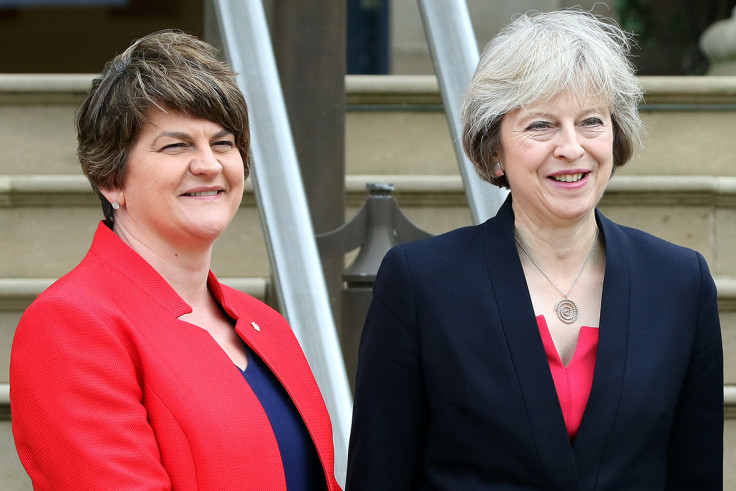Parliament must approve £1bn DUP deal propping up Conservative government after election disaster
Letter from Gina Miller prompts acknowledgement that parliament must approve deal underpinning government.
The £1bn (€1.1bn) in funding that formed the basis of an alliance struck between the Conservatives and the Democratic Unionist Party (DUP) following Theresa May's bungled snap election will require parliamentary approval, a letter from the government admits. That deal - agreed because the funding was promised - underpins the May government.
It potentially leaves the prime minister vulnerable because of her small majority in the House of Commons. Rebel Conservative MPs unhappy with her leadership could use it as leverage against her, threatening to bring down the Tory-DUP agreement unless she yields to their demands, though such a scenario is unlikely. There is also no timetable for the funding to be approved and allocated, which could strain the DUP-Conservative deal if the issue drags on.
The latest news comes after the government was challenged by campaigner Gina Miller over the payment's legal basis. Miller and the Independent Workers Union of Great Britain (IWGB) penned a letter to the government, asking for more details about the £1bn it promised to the DUP for Northern Ireland.
Treasury solicitor Jonathan Jones, who heads the government's legal department, said it "will have appropriate parliamentary authorisation", and that "no timetable has been set for the making of such payments".
Miller was previously successful when she challenged the government in the Supreme Court, forcing a parliamentary vote on triggering Brexit.
Speaking about the deal between the two parties, Miller said: "It beggars belief that, neither at the time the government sealed its dubious deal with the DUP in exchange for their votes in the Commons, nor at any point since, has the government made it clear that the £1bn of taxpayers' money for Northern Ireland could only be handed over following parliamentary approval."
After the 2017 general election, the Conservative party fell nine seats short of an overall majority and was forced to enter an agreement with the DUP to ensure major legislation, such as the Queen's Speech and Brexit issues, were passed. It left Theresa May with an effective working majority of just 13 MPs in the House of Commons.
As part of the agreement, £1bn in additional funding for Northern Ireland was announced, a sum that Miller also questioned in relation to the Barnett formula, which helps to determine funding for devolved governments and regions.
"The government is not under a legal obligation to allocate funding to the devolved administrations only in accordance with the Barnett formula," she said. "The Barnett formula is a non-binding convention and it does not preclude other means of additional funding being made available."

© Copyright IBTimes 2025. All rights reserved.





















